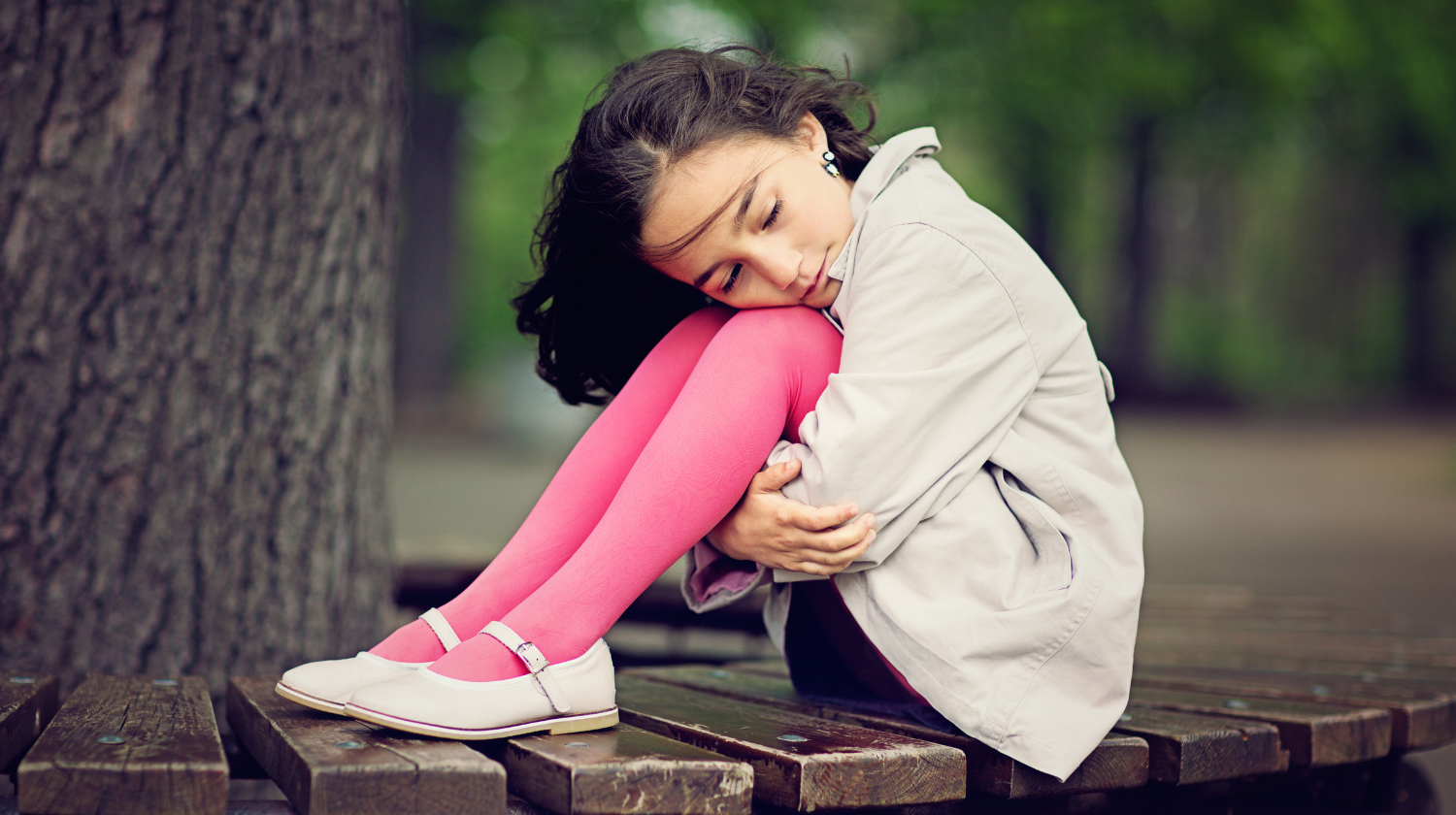 Expert's opinion
Expert's opinion
Expert's opinion
The article is a subjective view on this topic written by writers specializing in medical writing.
It may reflect on a personal journey surrounding struggles with an illness or medical condition, involve product comparisons, diet considerations, or other health-related opinions.
Although the view is entirely that of the writer, it is based on academic experiences and scientific research they have conducted; it is fact-checked by a team of degreed medical experts, and validated by sources attached to the article.
The numbers in parenthesis (1,2,3) will take you to clickable links to related scientific papers.
Childhood Trauma In Adults 2024: Signs & How To Treat

If you’ve experienced childhood trauma, this can linger and affect your life in adulthood. Anxiety, depression, and low self-esteem may have resulted from unresolved traumatic experiences. As an adult, you might have sought various remedies for anxiety without finding a long-term solution.
The ultimate solution is to recognize the signs of childhood trauma in adults and seek appropriate treatment to bring about significant healing, recovery, and growth.
Here you will learn about the common signs of childhood trauma in adults. You will also discover effective options for treating childhood trauma in adults.
Read on as you can take steps toward a brighter future by understanding trauma and addressing its effects.
How Does Childhood Trauma Affect Us As Adults?
Childhood trauma can affect adult mental and physical health, relationships, and overall well-being. It can lead to conditions such as anxiety, depression, and post-traumatic stress disorder. The impact of childhood trauma can also affect decision-making, behavior, and coping mechanisms. Understanding the effects of childhood trauma on adulthood can help trauma victims seek appropriate treatment and develop effective coping strategies to improve their quality of life.
What Is Childhood Trauma?
Childhood trauma[1] refers to experiences that can cause physical, emotional, or psychological harm during a person’s early developmental years. These effects of childhood trauma in adulthood vary in circumstance, duration, and intensity.
Here are the most common childhood abuse traumas and how they may affect you:
- Physical abuse[2] refers to any physical harm caused to a child, such as hitting, beating, or shaking.
- Sexual abuse[3] involves sexual activity with a child, including touching, fondling, or sexual violence like penetration.
- Emotional abuse[4] occurs when an authority figure constantly criticizes, belittles, or mistreats you.
- Neglect involves failing to provide a child with basic needs such as food, shelter, and medical care. This neglect is another form of abuse.
- Bullying[5] is the unfair treatment you may get from peers or people older than you to instill fear and assert dominance. A minor example is name-calling, while extreme cases involve violence.
- Household dysfunction can include any traumatic event caused by exposure to domestic violence,[6] turbulent divorce,[7] substance abuse, or having a parent with mental illness within the home.
- Kidnapping is when someone forcefully takes you away from your primary caregiver.
Trauma in childhood comes in different forms, and each can have long-lasting effects on your mental and physical health, social relationships, and overall well-being. Natural disasters and war might also cause childhood trauma.
The severity, duration of the trauma, and the child’s age are critical factors that determine the trauma’s impact on the child’s development.
Symptoms Of Childhood Trauma In Adults
Professionals can run the best childhood trauma test for adults, help you uncover the true diagnosis, and offer advice on how to deal with it.
Here are most of the symptoms of childhood trauma in adulthood and the immediate signs to look for in childhood.
Physical Abuse Symptoms
Physical abuse can result in physical symptoms such as bruises, cuts, broken bones, and chronic pain.
As a victim, from a very young age, you may develop scars, anxiety, depression, self-harm tendencies, and post-traumatic stress disorder, i.e., PTSD.[8]
Sexual Abuse Symptoms
The complex childhood trauma in adults from sexual abuse can present as anxiety, depression, and shame. An adult may also feel guilt, self-blame, and get lifelong sexually transmitted infections and diseases.[9]
As a sexual abuse survivor, you may also experience flashbacks, traumatic memories, nightmares, a trend of seeking unhealthy relationships, sexual dysfunction,[10] and substance abuse disorders as a coping mechanism.
Emotional Abuse Symptoms
Emotional abuse symptoms are not always immediate, as it is often an experience that builds up over time. Common symptoms include difficulty managing emotions, low self-esteem, anxiety, depression, personality disorders, self-harm, and suicidal ideation.[11]
An emotional abuse survivor may struggle to form relationships with others, have mental health disorders, cognitive issues, and engage in self-destructive behaviors.
Childhood Neglect Symptoms
Neglect symptoms include malnutrition, chronic fatigue, poor hygiene, lack of medical care, or more serious illnesses in some cases. A third party can easily detect abusive signs since the evidence is easier to see.
The signs of repressed childhood trauma in adults from neglect are developmental delays,[12] unhealthy attachments, mental impairment, depression, anxiety, and difficulty forming healthy romantic relationships.
Bullying Symptoms
If you were bullied as a child, you might experience anxiety, teen depression, and low self-esteem.
Adults that grow up with this unresolved childhood trauma may also struggle with suicidal ideation, self-harm, substance abuse disorders,[13] and mental health issues.
Household Dysfunction Symptoms
Household dysfunction symptoms include exposure to violence, turbulent divorce, or substance abuse in your childhood home. The symptoms may manifest immediately or progressively depending on the actual event.
Nonetheless, it can result in symptoms such as anxiety, sadness, chronic stress, depression, personality disorders,[14] and PTSD from childhood trauma.
Adult survivors that experienced childhood trauma this way may also have a hard time with adult relationships. For example, they may gravitate towards abusive partners, engage in substance abuse, or develop health problems.
Kidnapping Symptoms
Kidnapping is a complex kind of abuse, as the traumatic events during the kidnapping might aggravate the abuse.
Kidnapping can lead to symptoms such as separation or social anxiety, panic attacks, depression, complex PTSD,[15] and Stockholm syndrome.[16] Stockholm syndrome is when you develop a positive bond with your kidnapper.
Even if you manage to escape or someone rescues you, you may still suffer from relationship issues and have difficulty forming trusting interpersonal relationships.
How To Treat Childhood Trauma In Adults
Treating childhood trauma is crucial, as you never want history repeating itself. It is very individualized, as every person requires specialized treatment based on their specific trauma.
Please note that healing childhood trauma in adults is not a one-time event but something you might have to be part of for a while to heal.
Here are some ways to treat childhood trauma in many adults:
Therapy

This can include physical or online talk therapy or cognitive behavioral therapy, i.e., CBT, which is designed to help trauma victims process and cope with traumatic experiences.
Physical or online therapy involves expressing your emotions in real-time to a therapist trained in listening. Psychotherapy helps you navigate the feelings and find actionable solutions that adapt to healing.
Trauma-focused CBT,[17] which includes prolonged exposure therapy, helps you identify negative beliefs and emotions related to trauma and replace them with positive ones. It does this through gradual exposure to the trauma trigger in small doses and restructuring your mind to tolerate it. Eventually, the goal is for you to no longer get triggered by the trauma or fear it.
Another childhood trauma therapy for adults is eye movement desensitization and reprocessing therapy, i.e., EMDR.[18] EMDR helps you process traumatic experiences by recalling them using specific eye movements.
Medications

Depending on the symptoms you experience after adverse childhood experiences, such as child abuse, a mental health professional may recommend medicines like antidepressants, anti-anxiety medications, or mood stabilizers.
The main job of prescribed medication is to help manage symptoms like anxiety and depression.
Self-care

Practicing self-care can help you manage and adapt to trauma symptoms. This self-care can include exercise[19] you enjoy, healthy eating, and getting enough sleep.
The important aspects of these simple self-care practices are to promote relaxation, self-awareness, and self-compassion.
Support Groups

Joining a support group[20] can help trauma victims connect with others who have experienced a similar traumatic event, providing a supportive community of understanding.
These support groups can be fundamental to your childhood trauma healing journey, offering validation, social support, and a safe space to share experiences.
Mind-body Therapies

Yoga, meditation, and mindfulness[21] can help you learn to regulate your emotions more positively to help manage trauma symptoms.
It’s important to note that every trauma experience is unique, and there is no one-size-fits-all approach to treatment. However, it is recognized that emotional regulation therapies and using cognitive processing therapy can both be part of a personalized treatment plan in conjunction with a mental health professional.
Conclusion
Childhood trauma can profoundly impact mental and physical health. Recognizing the signs of childhood trauma and seeking help from mental health professionals is essential.
Treatment options, such as exposure therapy, cognitive behavioral therapy, EMDR, and mindfulness techniques, can manage symptoms. Support groups and connecting with others who have experienced trauma like you can also provide a sense of community and validation.
Remember that your healing in adulthood is a journey if you have unresolved trauma, as there are pent-up emotions present. So being patient, resilient, and kind to yourself is vital throughout the process. It’s most important to remember that whatever happened in the past wasn’t your fault, and there is no reason to feel ashamed of your traumatic experience.
By utilizing the right tools, support, and mindset, you can overcome the challenges brought on by the effects of childhood trauma and lead a fulfilling life.
It’s crucial to keep your eyes open for signs of abuse in children and adults and to address any issues vigilantly.
If your suspicions are correct, contact the authorities immediately if it’s a child. If it’s an adult, search for “childhood trauma therapy for adults near me” to save that vulnerable person from dealing with severe childhood abuse challenges alone.
+ 21 sources
Health Canal avoids using tertiary references. We have strict sourcing guidelines and rely on peer-reviewed studies, academic researches from medical associations and institutions. To ensure the accuracy of articles in Health Canal, you can read more about the editorial process here
- Samhsa.gov. (2015). Understanding Child Trauma. [online] Available at: https://www.samhsa.gov/child-trauma/understanding-child-trauma.
- Lansford, J.E., Godwin, J., McMahon, R.P., D. Max Crowley, Pettit, G.S., Bates, J.E., Coie, J.D. and Dodge, K.A. (2021). Early Physical Abuse and Adult Outcomes. [online] 147(1). doi:https://doi.org/10.1542/peds.2020-0873.
- Fong, H., Bennett, C.E., Mondestin, V., Scribano, P.V., Mollen, C.J. and Wood, J.M. (2020). The Impact of Child Sexual Abuse Discovery on Caregivers and Families: A Qualitative Study. [online] 35(21-22), pp.4189–4215. doi:https://doi.org/10.1177/0886260517714437.
- Liu, Y., Peng, H., Wu, J. and Duan, H. (2021). The Relationship Between Childhood Emotional Abuse and Processing of Emotional Facial Expressions in Healthy Young Men: Event-Related Potential and Behavioral Evidence. [online] 12. doi:https://doi.org/10.3389/fpsyg.2021.686529.
- Thormod Idsoe, Vaillancourt, T., Atle Dyregrov, Kristine Amlund Hagen, Ogden, T. and Ane Nærde (2021). Bullying Victimization and Trauma. [online] 11. doi:https://doi.org/10.3389/fpsyt.2020.480353.
- Mueller, I. and Tronick, E.Z. (2019). Early Life Exposure to Violence: Developmental Consequences on Brain and Behavior. [online] 13. doi:https://doi.org/10.3389/fnbeh.2019.00156.
- Lange, C., Visser, M., Ron and Catrin Finkenauer (2021). Parental Conflicts and Posttraumatic Stress of Children in High-Conflict Divorce Families. [online] 15(3), pp.615–625. doi:https://doi.org/10.1007/s40653-021-00410-9.
- Sanchez, S.E., Pineda, O., Chaves, D.Z. and Williams, M.A. (2017). Childhood Physical and Sexual Abuse Experiences Associated with Post Traumatic Stress Disorder among… [online] ResearchGate. Available at: https://www.researchgate.net/publication/320401723_Childhood_Physical_and_Sexual_Abuse_Experiences_Associated_with_Post_Traumatic_Stress_Disorder_among_Pregnant_Women.
- Anon, (2023). Sexual Assault and Abuse and STIs – STI Treatment Guidelines. [online] Available at: https://www.cdc.gov/std/treatment-guidelines/sexual-assault-children.htm.
- Ateret Gewirtz-Meydan and Opuda, E. (2020). The Impact of Child Sexual Abuse on Men’s Sexual Function: A Systematic Review. [online] 23(1), pp.265–277. doi:https://doi.org/10.1177/1524838020939134.
- Wolford-Clevenger, C., Grigorian, H., Brem, M.J., Autumn Rae Florimbio, Elmquist, J. and Stuart, G.L. (2017). Associations of Emotional Abuse Types With Suicide Ideation Among Dating Couples. [online] 26(9), pp.1042–1054. doi:https://doi.org/10.1080/10926771.2017.1335821.
- Child Welfare Information Gateway (2019). Long-Term Consequences of Child Abuse and Neglect. [online] Child Welfare Information Gateway, Children’s Bureau, pp.1–9. Available at: https://www.childwelfare.gov/pubpdfs/long_term_consequences.pdf.
- Gaete, J., Tornero, B., Valenzuela, D., Rojas-Barahona, C.A., Salmivalli, C., Valenzuela, E. and Araya, R. (2017). Substance Use among Adolescents Involved in Bullying: A Cross-Sectional Multilevel Study. [online] 8. doi:https://doi.org/10.3389/fpsyg.2017.01056.
- Xie, G.-D., Chang, J.-J., Yuan, M.-Y., Wang, G.-F., He, Y., Chen, S. and Su, P.-Y. (2021). Childhood abuse and borderline personality disorder features in Chinese undergraduates: the role of self-esteem and resilience. [online] 21(1). doi:https://doi.org/10.1186/s12888-021-03332-w.
- Chinonye, A.O. (2023). Assessing the Extent of Post-traumatic-stress Disorder from Kidnapping Experience of 5 Victims and their Significant others in Kaduna Metropolis, Kaduna State, Nigeria. [online] 5(1), pp.29–43. doi:https://doi.org/10.47672/ajp.1388.
- Cabrera, K. (n.d.). Susceptibility and the Stockholm Syndrome Susceptibility and the Stockholm Syndrome. [online] Available at: https://stars.library.ucf.edu/cgi/viewcontent.cgi?article=2371&context=honorstheses.
- Michael, D. Russell Lyman, Jobe-Shields, L., George, P., Dougherty, R.M., Daniels, A.S., Sushmita Shoma Ghose, Huang, L.N. and Delphin-Rittmon, M.E. (2014). Trauma-focused cognitive-behavioral therapy for children and adolescents: assessing the evidence. [online] doi:https://doi.org/10.1176/appi.ps.201300255.
- Shapiro, F. (2014). The Role of Eye Movement Desensitization and Reprocessing (EMDR) Therapy in Medicine: Addressing the Psychological and Physical Symptoms Stemming from Adverse Life Experiences. [online] 18(1), pp.71–77. doi:https://doi.org/10.7812/tpp/13-098.
- Mizzi, A.L., McKinnon, M.C. and Becker, S. (2022). The Impact of Aerobic Exercise on Mood Symptoms in Trauma-Exposed Young Adults: A Pilot Study. [online] 16. doi:https://doi.org/10.3389/fnbeh.2022.829571.
- Pfeiffer, E. (2021). Efficacy of exposure in group settings for youth with posttraumatic stress symptoms. [online] 15(1). doi:https://doi.org/10.1186/s13034-021-00408-z.
- Kachadourian, L.K., Ilan Harpaz-Rotem, Tsai, J., Southwick, S.M. and Pietrzak, R.H. (2021). Mindfulness as a mediator between trauma exposure and mental health outcomes: Results from the National Health and Resilience in Veterans Study. [online] 13(2), pp.223–230. doi:https://doi.org/10.1037/tra0000995.



